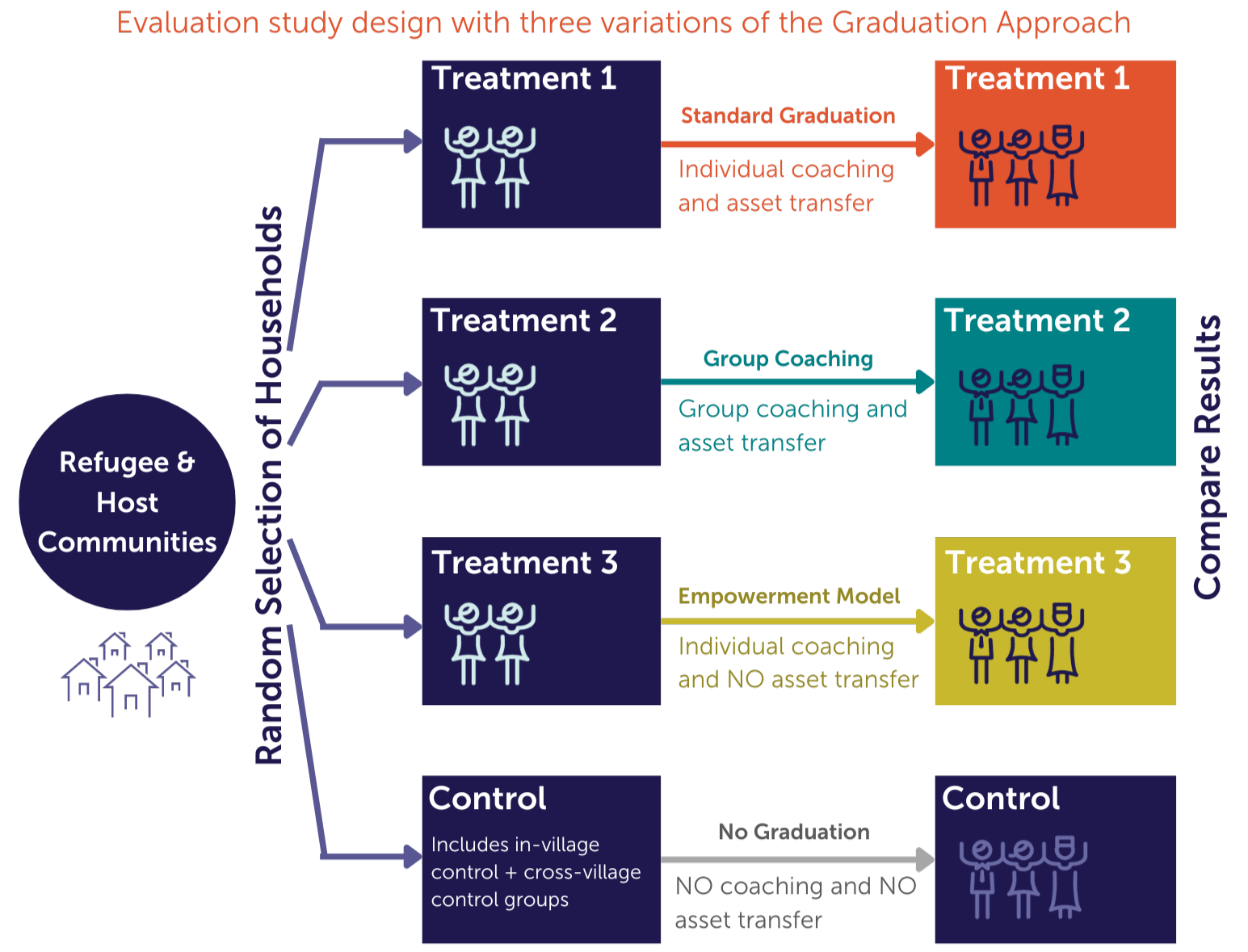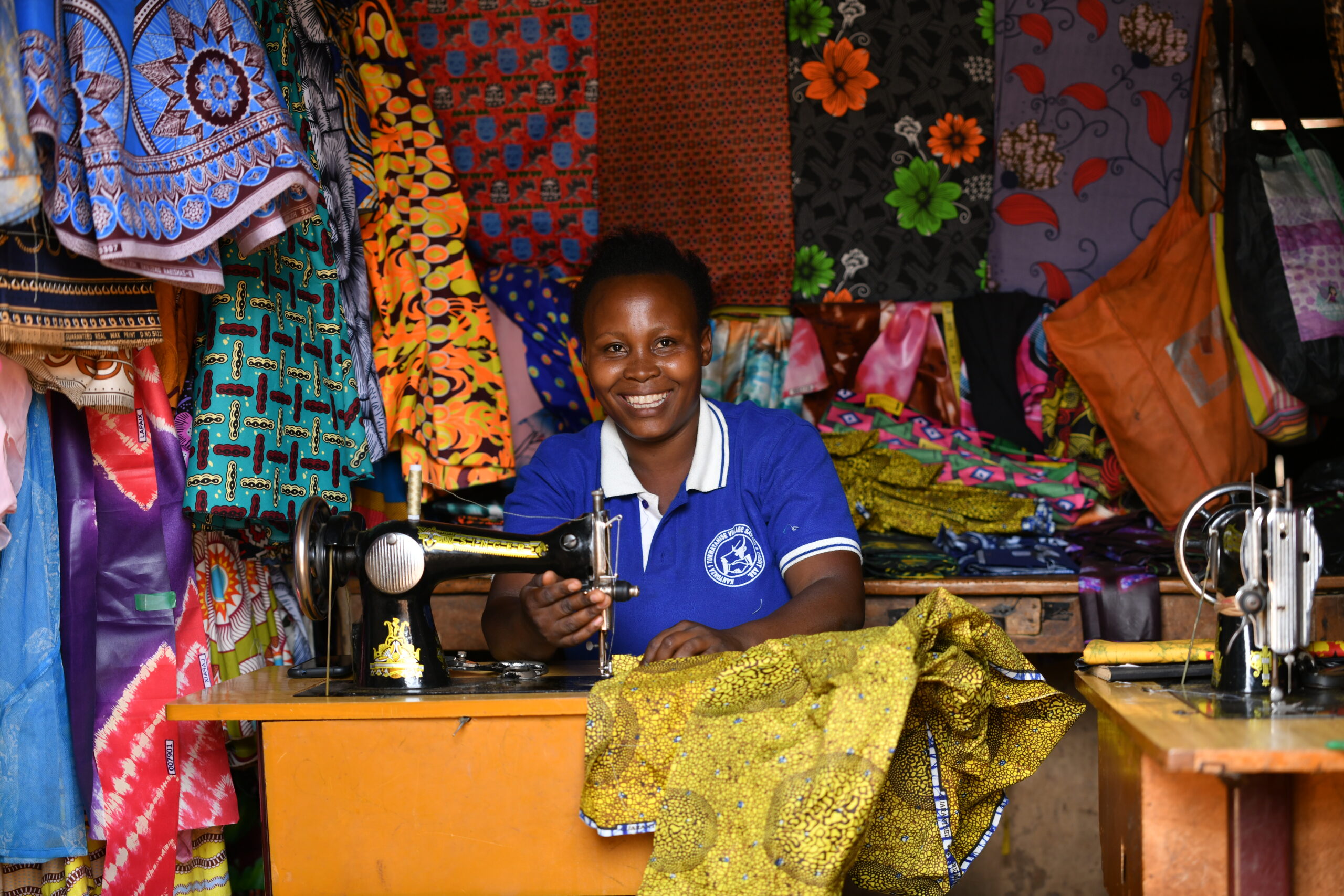In 2017, the AVSI consortium in Uganda, funded by USAID and consisting of the American Institutes for Research and Trickle Up, adapted and implemented the Graduation Approach to improve food security, nutrition, self-reliance, and resilience among refugees and host communities in extreme poverty in the Rwamwanja Refugee Settlement and surrounding host communities of the Kamwenge District in southwest Uganda.
The goal of this USAID Activity is to graduate 13,200 refugee households — largely from the Democratic Republic of the Congo — and households in the host village in Uganda living in extreme poverty, bolster their food security, strengthen their livelihoods, and build community towards sustainable pathways out of poverty.
The USAID Activity programming was based in part on Trickle Up’s experience adapting the Graduation Approach for people affected by displacement and AVSI’s previous Sustainable Comprehensive Responses for Vulnerable Children and their Families (SCORE) project. The activity includes consumption support, asset transfer, coaching sessions (group or individual), village savings and loan associations, livelihoods skills training and support, and referrals and linkages.
Innovations for Poverty Action (IPA) evaluated the first cohort of this program using a randomized controlled trial to measure the impact and cost-effectiveness of different variations of the Graduation Approach.
The IPA evaluation study design split participants into four categories: three groups receiving a variation of the Graduation Approach programming and one group serving as the control. The three different variations of the Graduation Approach were:
- Standard Graduation: including individual coaching opportunities and asset transfer.
- Group Coaching: including group coaching sessions and asset transfer.
- Empowerment Model: including individual coaching sessions, but no asset transfer.
In the control group, there was no coaching in addition to do asset transfer.

SUMMARY OF PUBLISHED RESULTS
- Researchers found large positive returns on investment for all variations of the program.
- All program beneficiaries fared better than the households assigned to the control / comparison group in all outcome indicators. Impacts were generally larger for hosts compared to refugees, except in consumption where the effects are similar for the two groups.
- Productive asset values increased by between 40 % (for the no asset graduation group) and 88 % (for the full graduation group) on average relative to the comparison group mean.
- Total household income increased by between 32 % (for the no asset graduation group) and 45 % (for the full graduation group) on average relative to the comparison group mean.
- Consumption per capita increased by 18 % (for the no asset graduation group) and 25 % (for the full graduation group) on average relative to the comparison group mean.
- Food security also increased among all graduation groups, with households scoring on average 0.51 (T3) to 0.63 (T1) standard deviations higher than control households on a composite food security index (set to a mean of zero in the control).
- Participants’ subjective well-being increased substantially as well, with households reporting better mental health and higher life satisfaction.
- Individual and group coaching have the same results but latter costs an estimated 13% less.
To read more about this study, please click here for the IPA’s summary of results.
To learn more about Graduating to Resilience, click here for our project page.
This activity aims to also provide USAID evidence to inform future food security and resilience programming.
To download a summary of results from consortium leader, AVSI, click here.



